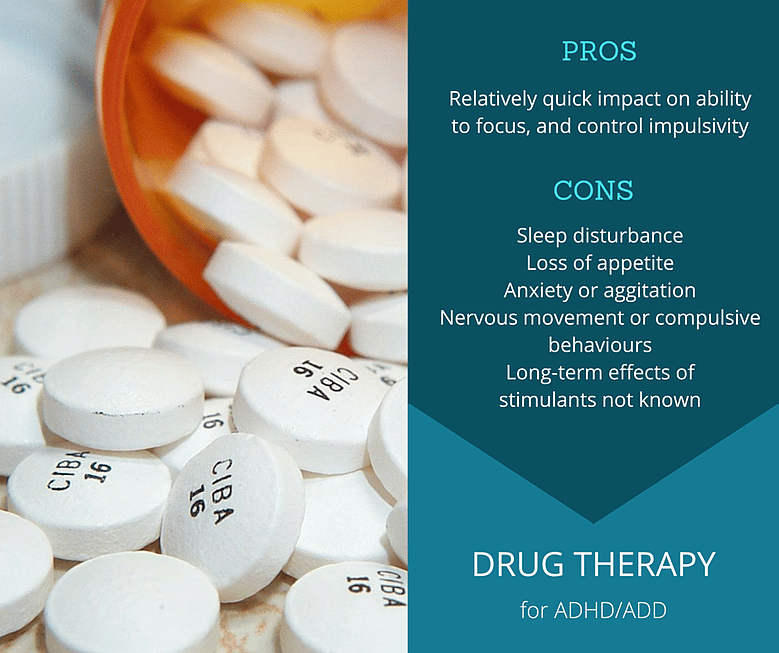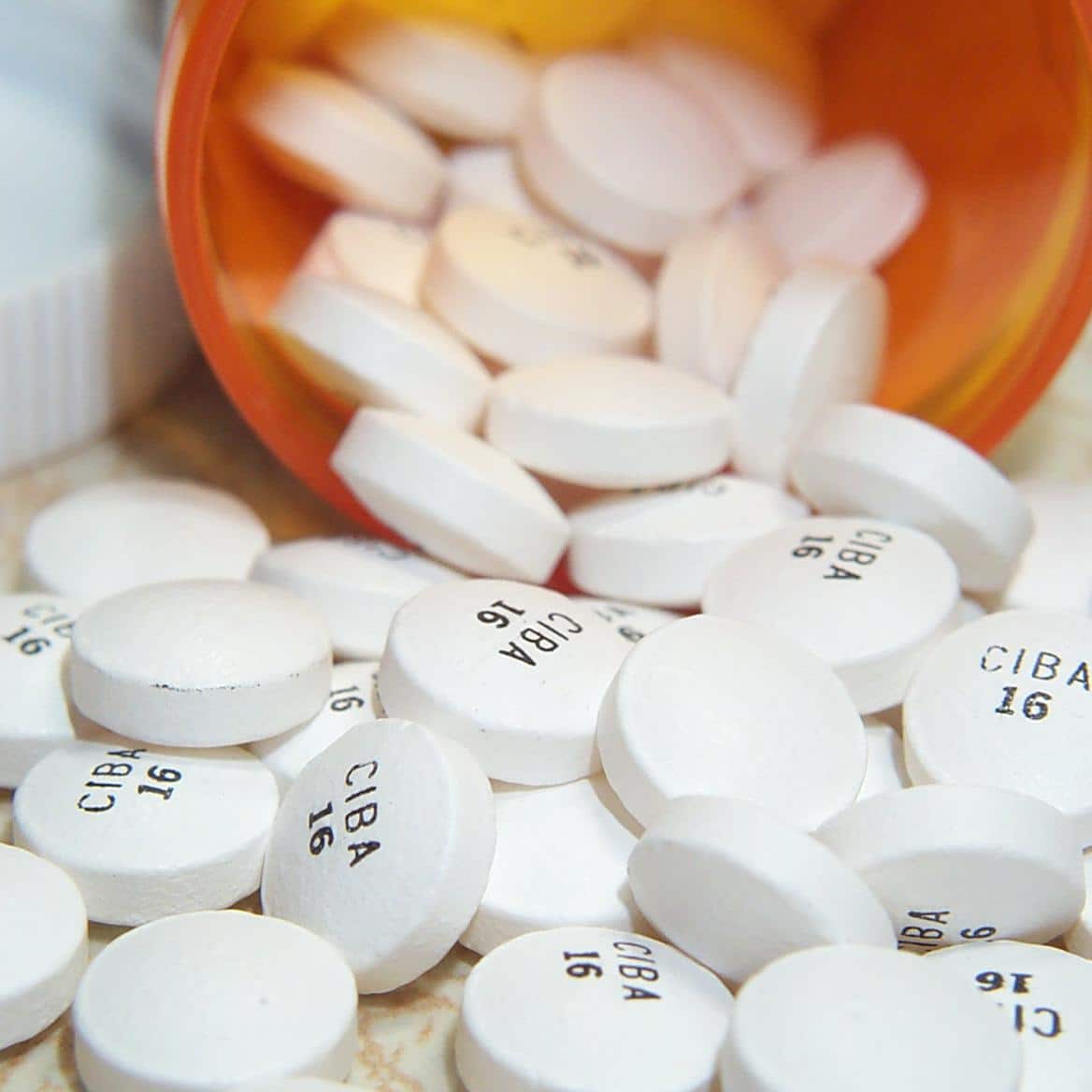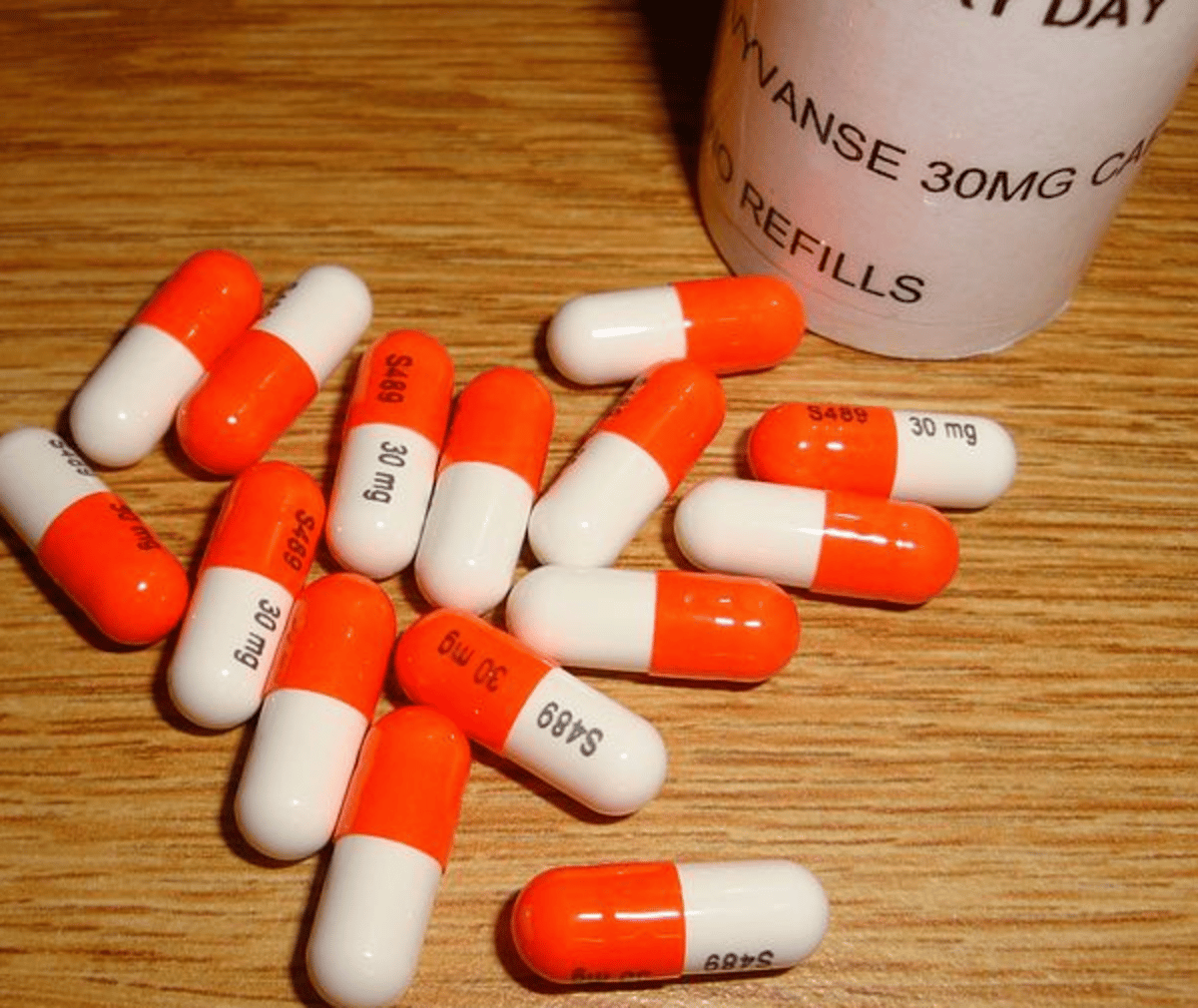What Is Stimulant Therapy
Stimulant therapy is the most commonly used treatment for Attention-Deficit Disorder/ Hyperactivity Disorder, also known as ADHD.
Stimulants are an effective way of managing ADHD symptoms such as short attention span, impulsive behavior, and hyperactivity. They may be used alone or in combination with behavior therapy.
These drugs improve ADHD symptoms in about 70% of adults and 70% to 80% of children shortly after starting treatment. Improvements include reduced interrupting, fidgeting, and other hyperactive symptoms, as well as improved task completion and home relationships.
Improvements in behavior and attention span usually continue as long as the medication is taken, although benefits in social adjustment and school performance have not yet been shown to endure over the long term.
These medications are not considered to be habit-forming when used to treat ADHD in children and adolescents, and there is no evidence that their use leads to drug abuse. Nonetheless, there is a potential for abuse and addiction with any stimulant medication, especially if a person has a history of substance abuse. Recent research, nevertheless, shows that individuals with ADHD had a lower incidence of substance use disorder if they were medically treated than if they were not treated.
How Do I Explain Adhd Medication To My Child
It is important that you and your child discuss what ADHD is and how medication will help them, why it is being prescribed, and how it affects their ability to function. This recommendation is especially true for older children and adolescents who may have concerns about being different because they are taking medicine. You can talk to your child about this, and you can compare taking ADHD medications to wearing eyeglasses. Wearing glasses helps you to see better just as ADHD medication helps you to focus on your work, pay attention, learn, and behave better.
Young people with ADHD and their parents often report that they find certain books, articles or websites helpful. You will find a list of resources here.
Behavior Therapy Including Training For Parents
ADHD affects not only a childs ability to pay attention or sit still at school, it also affects relationships with family and other children. Children with ADHD often show behaviors that can be very disruptive to others. Behavior therapy is a treatment option that can help reduce these behaviors it is often helpful to start behavior therapy as soon as a diagnosis is made.
The goals of behavior therapy are to learn or strengthen positive behaviors and eliminate unwanted or problem behaviors. Behavior therapy for ADHD can include
These approaches can also be used together. For children who attend early childhood programs, it is usually most effective if parents and educators work together to help the child.
Children younger than 6 years of age
For young children with ADHD, behavior therapy is an important first step before trying medication because:
- Parent training in behavior management gives parents the skills and strategies to help their child.
- Parent training in behavior management has been shown to work as well as medication for ADHD in young children.
- Young children have more side effects from ADHD medications than older children.
- The long-term effects of ADHD medications on young children have not been well-studied.
School-age children and adolescents
- Parent training in behavior management
- Behavioral interventions in the classroom
- Peer interventions that focus on behavior and
- Organizational skills training.
Read Also: Can You Have Down Syndrome And Autism
How Do Nonstimulants Work To Treat Adhd
Atomoxetine is a selective norepinephrine reuptake inhibitor that works, in theory, by increasing concentrations of norepinephrine and dopamine in the prefrontal cortex, which is believed to regulate behavior and thus helps with ADHD symptoms1.
Clonidine and guanfacine are alpha2-agonists. The prevailing theory is that these medications work by mimicking the effects of norepinephrine in the prefrontal cortexs receptors.1
Bupropion , while not approved for ADHD treatment, is an antidepressant that clinicians commonly prescribe off-label to treat ADHD.
Medications Used In The Treatment Of Adhd

Treatment of ADHD with medication is most effective for reducing the core symptoms of ADHDinattention, hyperactivity and impulsivity. The US Food and Drug Administration has approved several kinds of medications for ADHD that include stimulants and nonstimulants including atomoxetine and antihypertensives . These medications are listed in the chart below which shows:
- the medications grouped by class
- the brand name and generic name of each medication
- the duration and available dosage strengths
When ADHD coexists with other conditions such as anxiety, depression or bipolar disorder, other kinds of medications may be prescribed, such as antidepressants or antipsychotics. The American Academy of Pediatrics Drug Lookup site provides a list of medications for other conditions. The NRCs Ask the Expert Webinar, The Choice is in the Details Medication Options for ADHD, presents a discussion of the differences between medications, how they work, their benefits and potential side effects.
Your healthcare provider can help you select the right medication and dosage for your unique needs. Working with your provider to monitor your treatment is important in managing the side effects that you may experience. Research shows that combining medication with behavioral interventions such as parent education training, behavioral therapy and school accommodations will provide the greatest likelihood of success in treating ADHD.
- Visit the NRC on Social Media
Recommended Reading: How To Know If You Are High Functioning Autistic
Side Effects Of Medication For Adhd
The main short-term side effects of stimulants are poor weight gain and decreased appetite. Some others include:
- sleeping problems, such as delayed sleep onset
- emotional changes such as irritability, depression, nervousness or anxiety
- hallucinations or psychotic symptoms
- development or worsening of tics .
What Medicines Are Used To Treat Adhd
Stimulants
Although they wont cure ADHD, medications are more likely than other approaches to improve symptoms of attention, impulsivity and hyperactivity.
The most common medications used to treat ADHD are called stimulants. Stimulant medications will help improve symptoms for about 7 out of 10 children with ADHD.
Here is how stimulants work:
- When someone has ADHD, the pathways in the frontal lobe part of the brainwhich is involved in attentionarent working the way they should.
- Stimulants increase dopamine, a brain chemical that helps the pathways become more active.
- This increase in dopamine helps improve attention and decrease hyperactivity and impulsivity.
Stimulant medications have been used for a long time. Doctors understand how they work and what to watch for so that they are safe and effective.
Each of the 3 main stimulant medications has a different active ingredient:
- methylphenidate
- dextroamphetamine
- mixed amphetamine salts or MAS
All of these medications work in about the same way, and have similar side effects.
They come in shorter and longer acting forms. The active ingredient is the same but the form that it comes in and the way it is released in the body are different. Your childs doctor will choose a medication based on your childs symptoms, other health conditions, sleeping and eating habits, and ability to swallow medicine.
Second-line medications
There are other medications that can be used for ADHD if stimulants are not effective or not tolerated:
Don’t Miss: What Are The 5 Disorders On The Autism Spectrum
Family Counselling And Adhd
Family counselling aims to help the other members of the household understand and cope better with the childs behaviour. For family counselling to work, everyone in the family needs to understand ADHD is not caused by them but rather their actions can modify the impact of ADHD. Reading books about ADHD and joining an ADHD support group can help. For example, parents may learn different management techniques and how to balance punishments and rewards. Communication skills and anger management techniques are also useful. Assistance is also available through local or community organisations and ADHD Australia.
General Considerations For Choosing A Stimulant
Consider low-dose short-acting medications for children younger than 6 years old to minimize dose-related side effects.
Long-acting medications may be used in children over 6 years, starting at a low dose and titrating for maximum efficacy while minimizing side effects. Long-acting or extended-release dosage forms may improve adherence and are less likely to be misused.
A combination of long-acting and short-acting medications may provide extra coverage when needed such as for the completion of homework after school.
You May Like: How Do You Spell Autism
How To Find The Right Medication And Dosage
It is important to work with your doctor to find the right medication and dosage for you. Everyone responds differently to medication, so it may take some trial and error to find the right one for you. It is also important to be patient when starting a new medication. It can take several weeks for the full effects of the medication to be seen.
Quillivant Xr And Quillichew Er
Quillivant XR and QuilliChew ER contain methylphenidate in two forms. A small portion of the medication is in an immediate-release form, while the majority of the medication is a film-coated extended release form. This means that part of the medication can be absorbed immediately while the rest is absorbed over up to hours.
Quillivant is a powder that is dissolved in water and swallowed, while QuilliChew is a chewable tablet.
Read Also: How Young Can You Detect Autism
Can Lifestyle Changes Help Treat Adhd
Certain lifestyle changes at home can help create a better environment for people with ADHD.
For children, these measures may involve:
- Following a regular schedule for meals, naps, and bedtime
- Frequent physical activity and time spent outdoors
- Keeping all areas of the home organized and uncluttered having a designated place for everything
- Removing distractions, such as TVs and cellphones
- Using simple words, direct eye contact, and clear commands when giving a child instructions
- Finding ways to boost self-esteem, such as sports and other extracurricular activities
- Helping children break down large tasks into smaller, less overwhelming ones
- Showing affection frequently
- Setting boundaries compassionately, which includes recognizing and validating the childs struggle and giving positive feedback for effort and small accomplishments while also being clear, consistent, and firm about what kinds of behaviors are not allowed.
For adults, lifestyle accommodations can include:
Who Should Not Take A Stimulant Drug

- Patients with any of the following conditions or drug treatments should not take stimulant therapy: Allergy or sensitivity to stimulant medications.
- Patients with glaucoma .
- Patients with severe anxiety, tension, agitation, or nervousness.
- Patients undergoing treatment with a type of medication called monoamine oxidase inhibitors , such as Nardil® , Parnate® , Marplan® , or Eldepryl® within 14 days of starting stimulant therapy.
- Patients with motor tics or a personal or family history of Tourette’s Syndrome.
- Patients who have current psychotic episodes or a personal history of psychosis.
- Patients with certain types of irregular heart beat.
- Patients with a history of alcohol or substance abuse.
It is important to note that this is not an all inclusive list. Your physician will need to evaluate your complete medical history and regimen of medications, over-the-counter drugs, and dietary supplements to help determine if you would be able to take a certain stimulant.
Also Check: Best Adhd Medication Adults
Complementary And Alternative Therapies For Adhd
While there is some evidence that certain complementary and alternative treatments may improve ADHD symptoms, the scientific support for the efficacy of such therapies is only preliminary. Since more research is needed to fully assess the efficacy and safety of such treatments, be sure to talk to your doctor before starting or adding a complementary or alternative therapy to manage your ADHD.
Some complementary and alternative therapies for ADHD may include:
What Are The Side Effects Of Stimulants
Common side effects include:
These often go away after a few weeks of taking these medicines. Thatâs because your body can adjust to the medication. But if they donât get better, let your doctor know.
Other side effects include:
- Less of an appetite
The side effects may go away if your doctor changes your dose or if you try a different type of stimulant.
Some kids and teens who take stimulants grow slower than those who donât. But it doesnât affect their final height. If your child is taking stimulants, their doctor should keep an eye on their weight and height.
Sometimes stimulants can cause allergic reactions. In the case of patches such as Daytrana, permanent loss of skin pigmentation can happen where the patch is put on. A skin rash can be one of the signs. In general, itâs best to call your doctor if you vhave any new or unusual symptoms.
Also Check: Can Autistic People Be Mean
Types Of Adhd Medications
Medications used to treat ADHD can be separated into these two broad categoriesstimulants and non-stimulants:
- Stimulants: These are a group of related medications that increase the amount of dopamine and norepinephrine thats available in the brain. Stimulants can increase a persons energy, alertness, and attention.
What If You Dont Have Adhd
Only take these medications if theyre prescribed to you. Taking these drugs without a prescription if you dont have ADHD can have serious and potentially harmful side effects.
Stimulant medications have the potential to be misused, especially by those without ADHD. This is due to the side effects of prolonged concentration and alertness, as well as the potential loss of appetite and weight loss.
Read Also: How To Get Your Autistic Child To Talk
Dosage For Adhd Medications
Any changes to medications should always be supervised by the prescribing doctor. They may need to adjust the dosage and timing for an individual child to get the best control of ADHD symptoms while minimising possible side effects. For both dexamphetamine and methylphenidate, the dosage may be gradually increased over three or four weeks, using half tablets if necessary.The doctor may stop the medication if the child shows no improvement at the end of four weeks. The other medication can then be trialled in a similar way. If the medication works, the doctor may increase the dose as the child grows.
Are Stimulants Addictive
Many people worry that stimulants might have an addictive effect. However, when taken as prescribed, the risk of that is low.
These drugs are very similar to illegal street drugs, like methamphetamine, that people use to get high. However, those drugs are taken at much higher amounts than those prescribed by a clinician.
Some people do abuse medications used for ADHD, taking more than prescribed or tampering with the pills to get high. But people who take these drugs the right way dont have these issues.
Read Also: How Does Cbd Help Autism
How Can Adhd Be Treated
With treatment, children with ADHD can live with and manage their symptoms. Treating ADHD can involve:
- education and skills training for parents, children and youth,
- strategies for understanding and building your childs social skills,
- classroom management strategies and study skills,
- medicine prescribed by a doctor.
What Is Adhd And What Are The Symptoms

Attention deficit hyperactivity disorder, or ADHD, is a mental disorder that is characterized by problems with focus, hyperactivity, and impulsiveness. While ADHD can be diagnosed in children, it is often not recognized until the individual reaches adulthood.
Symptoms of ADHD can vary from person to person and can range in severity. Many adults with ADHD find that their symptoms can interfere with work, school, and personal relationships.
Also Check: How To Deal With An Autistic Meltdown
What Is The Best Type Of Adhd Mediation For Children
Selection of an ADHD medication selection depends on patient-specific factors as well as drug side effects, interactions, and existing conditions. However, stimulant medications have been studied the most and have more evidence of use.
The National Institute of Mental Health states that no single treatment is best for all children and to consider the child’s needs as well as personal and medical history.
Are There Any Risks To Adhd Medications
Like many medications, stimulant medicines may have some side effects, although serious side effects are very rare.
Your doctor will assess for any risks before prescribing, monitor how your childs medication is working, and make adjustments as needed.
Here are some of the more typical changes you might notice:
- Children often have less appetite for lunch, but usually recover for dinner. Some children may need an extra snack.
- Some children may have difficulty falling asleep. Others may sleep better because their ADHD symptoms have improved, and they have a more successful day.
- Grumpiness, irritability or strong emotions when the medication is wearing off is common, especially in the first weeks after starting it. This usually passes with time.
Common side effects can be managed by changing the timing or dose of medication or by switching to another medication. Talk to your childs doctor if:
- Your childs irritable mood doesnt go away. The medication dose may need adjusting.
- Your child seems to concentrate too well or stare off. This can be a sign of too much medication.
Other ADHD medications may have different side effects, which your doctor can describe.
Stimulant medications should be taken with food, which is gentler on the stomach but does not affect how the medicine is absorbed.
Also Check: Does My Son Have Autism Or Adhd
Adhansia Xr And Aptensio Xr
Adhansia XR and Aptensio XR both contain multilayer bead formulations of methylphenidate. This means that each capsule contains tiny beads of medication with an outer immediate-release layer and inner extended-release layers.
Like other extended-release forms of methylphenidate, they typically begin to work within 1 hour. Adhansia may remain active for up to 12 hours , while Aptensio may act for up to 16 hours.
Aptensio capsules can be opened up and sprinkled over applesauce or yogurt, but the beads must not be chewed.